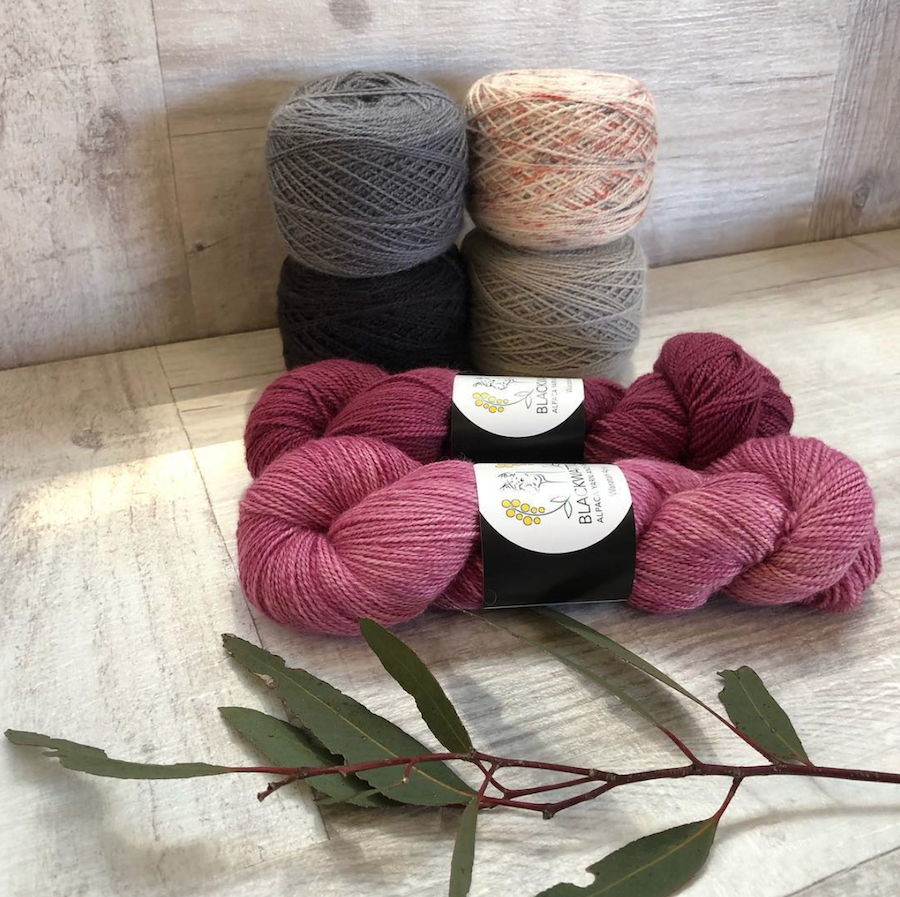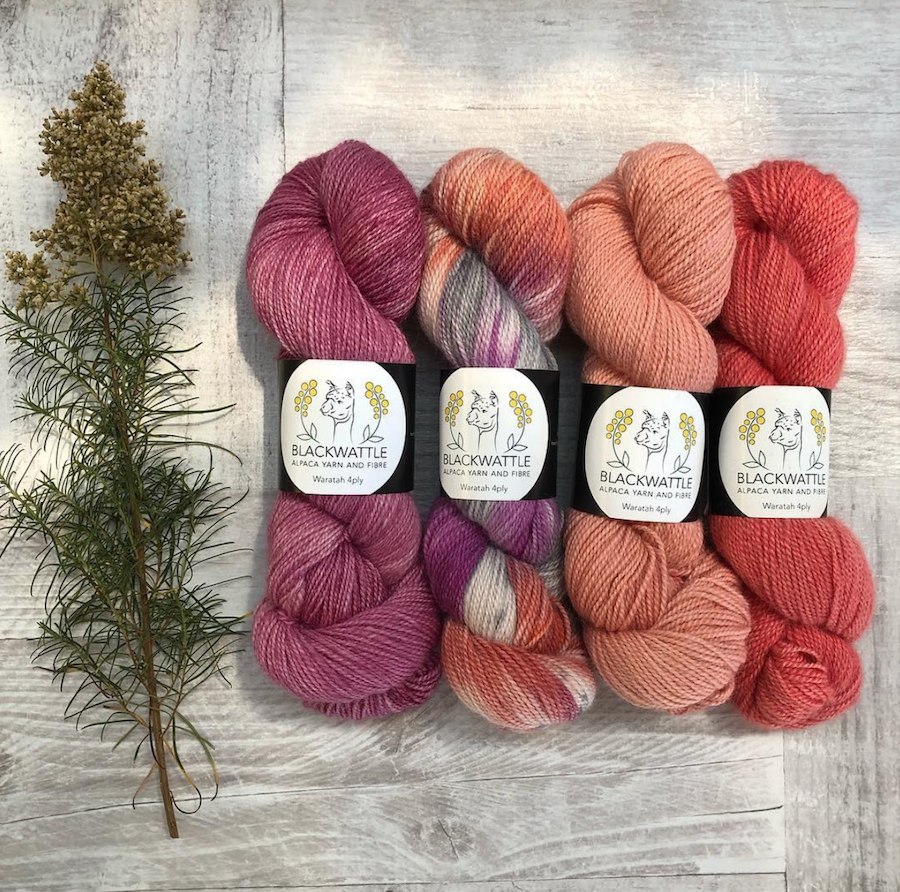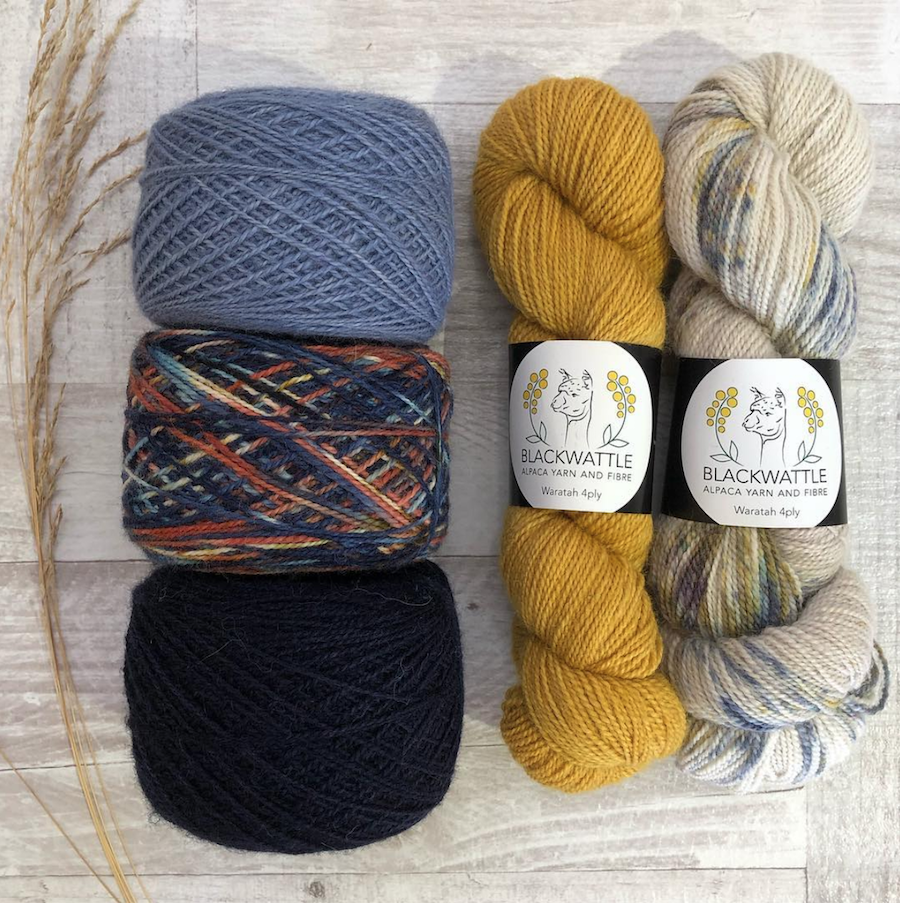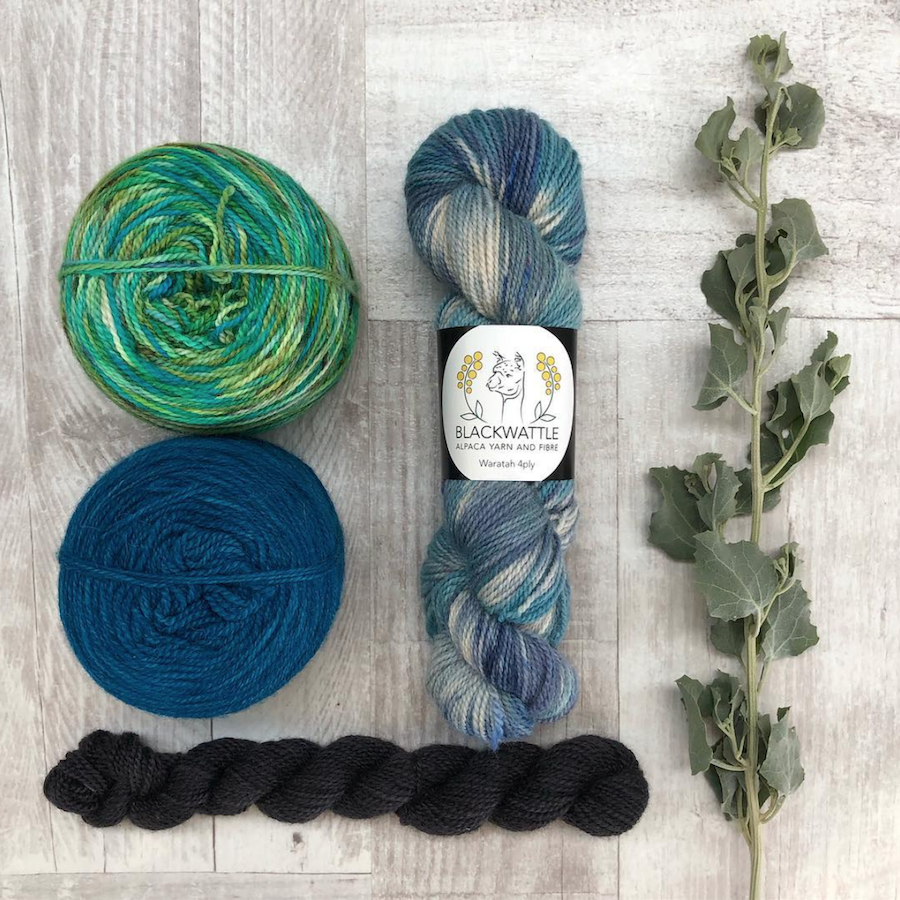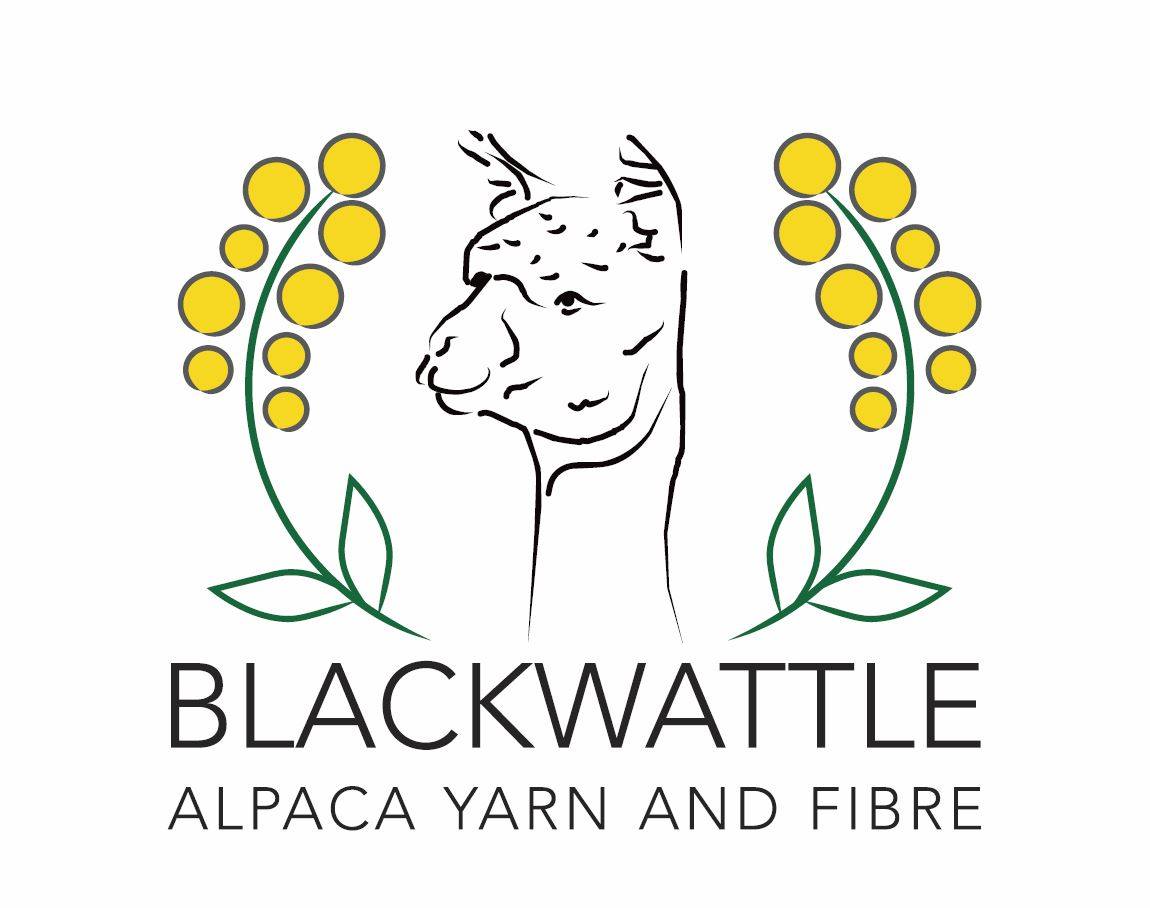Blackwattle Alpaca Yarn and Fibre
Blackwattle Alapaca Yarn and Fibre sells high-quality alpaca yarn with majority of their products grown and processed in NSW. Walking up to their stall, you can find raw fleece, rovings, natural alpaca yarn, and hand-dyed alpaca yarn. There’s plenty to appreciate whether you’d like to spin the fleece at home or do some felting.
They predominantly sell 100g skeins that range from $25 to $34. They have a premium range that is 100 percent suri alpaca that sell from $35 to $46. There is said to be only 10 percent of suri alpacas in Australia with most of their fibre shorn off and shipped to Italy for Italian suiting. Because of this, their fibre and yarns are highly sought after.
Their alpacas come from their farm called One Tree Hill Alpaca Farm located in Murrumbateman, NSW. “We had to buy a goat and brought home alpacas instead,” says Blackwattle Yarn and Fibre Owner Angela Smith.
“We had this fibre and I didn’t know what to do with it”
One Tree Hill opened in 2008. Overnight, their alpaca herd grew from 8 to 80. This was thanks to a herd of 72 rescue alpacas that they took in. The term “rescue” refers to unwanted or neglected alpacas who weren’t receiving the necessary husbandry. This includes vaccinations, cutting toenails, de-worming, or shearing. Alpacas need to be shorn every year. If left for unshorn for an extended period of time, it can lead to heat-related complications or illness.
In Angela’s case, they had a big number of alpacas that they were shearing every year. “We had this fibre and I didn’t know what to do with it,” says Angela. “What can we do with this fibre?” Initially, they had the fibre processed to create finished products such as beanies and scarves, which they sold at local markets.
After observing customers’ buying habits, she noticed that her other stand that was selling balls of wool was doing noticeably better. Customers were buying more yarn than finished products. “I was speaking to a few of them and I was wondering why they were buying that and not the finished products,” says Angela.
As some may already know, there is a big crafting community in Canberra. And they care quite a lot about knowing where their fibre comes from. Angela’s 20-year retail background lit a light bulb. “Let me be the person who gives it to them,” says Angela. “And that’s how the fibre business and the yarn business took off.”
“I needed three of me to man the stall, but it was fantastic”
Angela knows that there had been a few misconceptions with alpaca yarn. This was because of imported yarns that didn’t live up to standards. It gave the impression of products that were itchy, scratchy, and hairy. “With my product, I’m very strict with processing requirements,” says Angela. “Premium product in means premium product out.”
“Our alpaca fibre get sent away to be tested so we know what the parameters are. We process between 19 and 24 micron fibre. In terms of comfort, we aim for 95 percent and above in the comfort factor with fibres between 9cm and 11cm processed.” To add to their parameters for quality, all fibre processed into their yarn is dehaired. This removes all the coarse secondary fibres – the itchy bits. The result is high-quality alpaca yarn that is not only more visually more appealing, but it is also much softer creating greater comfort when it touches your skin.
See Blackwattle Alpaca Yarn and Fibre and their high-quality alpaca yarns at this year’s Canberra Wool Expo on 18-19 May. “It was fantastic,” says Angela of her experience at the Canberra Wool Expo last year. “I needed three of me to man the stall, but it was fantastic. Customers can expect high-quality alpaca yarn and fibre from us.”
For more on Blackwattle Alpaca Yarn and Fibre, visit their page on Facebook @BalckwattleAlpacaYarnandFibre and Instagram @BlackwattleYarn. You can also visit their website at www.blackwattleyarn.com.au.
As always, follow us on Facebook @OldBusDepotMarkets to stay up to date with the Canberra Wool Expo and Canberra’s Sunday Best.


